The Big Arts and Education Debate, held at the Birmingham Repertory Theatre, brought together nearly 300 creatives, arts professionals, educators and journalists to discuss the current state of theatre and education.
Though the debate was split into two panels – focusing on Arts and Education respectively – there was significant overlap and consensus. Both panels argued that the EBacc – the English Baccalaureate, ‘a combination of subjects that the government thinks is important for young people to study at GCSE’ – is jeopardising not only young people’s access to an education in the arts, but the future and diversity of the creative industries.
The creative industries are worth £91.8 billion a year to the UK economy, providing 6% of all UK jobs. And yet, the government’s promotion of the EBacc - a small selection of academically ‘rigorous’ subjects – demonstrates the political devaluation of the arts.
If young people are unable to access a creative education, not only are we denying pupils opportunities for personal and professional development, but we are jeopardising the future of one of the country’s most important industries.
The UK is the third largest exporter of the arts behind the USA and China. Our reputation as a country of astonishing and diverse talent is under threat through reduced accessibility and opportunities – and this begins with education.
Playwright James Graham, whose works include Ink (2017) and Labour of Love (2017), cited his career to the drama teachers at his comprehensive school in Nottinghamshire and the belief of his headmaster that: ‘working class kids should do plays, should do art, should make plays, write plays, act in plays, and through that, hopefully find some emotional, psychological, political way through the things that were happening in their lives.’
Graham suggested that had he experienced the current education system, he would not have become a playwright, arguing: ‘[it] is now policy, that someone like me wouldn’t have a play on’.
Some may rebut Graham’s argument, evidencing the £96 million funding announced last week by Schools Standards Minister Nick Gibb, designed to provide grants to talented pupils in music, drama and dance to pursue a creative education, however, grants do not solve the issue.
This money would be primarily delivered through the Music and Dance Scheme (MDS) and the Dance and Drama Awards (DaDa), to enable selected pupils to train at vocational schools such as the Royal Ballet School and Chetham’s School of Music.
Grants such as these do little to address the issue of diversity within the arts. Funding is given to ‘talented pupils’, yet when arts education is delivered largely through extra-curricular, fee-paying activities, this funding does little to provide creative training for those from less privileged socio-economic backgrounds.
Access to arts education shouldn’t be a proviso of talent. Pupils study Maths because it is believed to be beneficial to them, both short and long-term, and those that excel are encouraged to pursue it to higher education. Maths teaching is not denied to students because some pupils don’t possess a latent talent for arithmetic. It is taught irregardless, as pupils will hopefully learn through education.
The same rationale is not applied to arts subjects, as they are not seen to be as practical, beneficial, or as a gateway to a successful career. This is untrue: as Ammo Talwar, CEO of Birmingham-based Punch Records argued, robots and AI will replace 800 million jobs by 2030. The future will see a turn away from manufacturing and towards a consumption of creative output: we need to look for the opportunities within this change.
A knowledge-based approach is not only an old-school way of thinking, but is insufficient to equip us for the replacement of manual workers by technology: it is ‘creativity [that] will keep us at the forefront of what’s going on.’
But how are we to change the narrative that arts subjects will not viably lead to stable careers? In the debate, there was a consensus that greater outreach to parents was needed in order to show the wealth and array of career opportunities within the arts sector, and that not all are performing, but include technology and design, marketing and education.
However, the case for the arts is made more difficult by its increasing inaccessibility. Whereas 20 years ago, 16% of entry-level opportunities were unpaid, today it is 34%. With diminishing arts education in state schools, this further limits the diversity of those voices who have access to the megaphone.
Outreach might include backstage tours and free theatre performances for both parents and pupils, but ultimately, if the government is unwilling to accept the arts as legitimate subjects through revamping the EBacc – as per Labour’s Tom Watson’s commissioned report on the state of arts education, ‘Acting Up’ - it’s less likely that parents will.
Such action requires more efficient and effective collaboration between schools and arts organisations. While there are many fantastic theatres and groups out there more than willing and eager to share their insights into the arts – as proven by the turnout to the debate – several people articulated a frustration with the lack of a cohesive central body to directly partner schools and arts education groups.
While such issues of failed collaboration were raised, and a general feeling of fear and frustration was repeatedly expressed, the mood in the theatre was optimistically defiant. This was helped in part by the eloquent contributions by a group of pupils from Lordswood Girls’ School, Harborne, illustrating the political awareness of students in regards to the education they are being fed.
One pupil received round applause for questioning, “what are we doing with education? Making a business, or making a future?” The rhetoric of this year 9 pupil summarised in part the frustrations felt towards the EBacc: it simultaneously denied the legitimacy of creative subjects in order to preserve funding, while undermining the very real economic value of the arts.
There needs to be collaboration between the powers that be and those who are willing and able to enact the change. However, none of the MPs, councillors or government officials invited to attend the debate responded, and the only government official scheduled to participate, the West Midlands Regional Schools Commissioner, left after the first panel as they ‘couldn’t be seen to be supporting an anti-government initiative’.
Indhu Rubasingham, artistic director of Kiln Theatre, argued that the true meaning of education is to open the minds of young people. I agree, and hope that future events such as The Big Arts and Education debate will see greater participation from students, professionals and government officials alike, to open the minds of policy makers to the importance of a diverse, accessible and properly-funded arts education.
The Big Arts and Education Debate, Birmingham REP
A diverse panel and audience alike were brought together to discuss the troubled state of arts education and the way to change its future
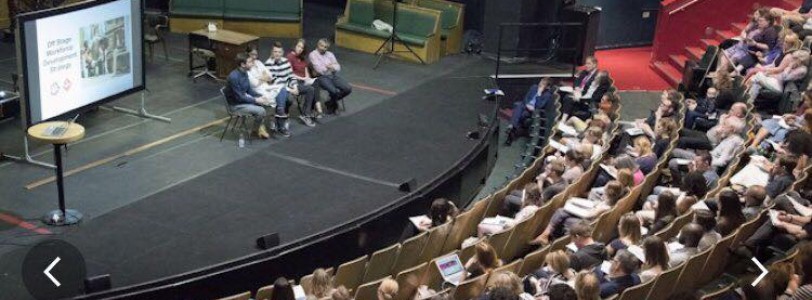

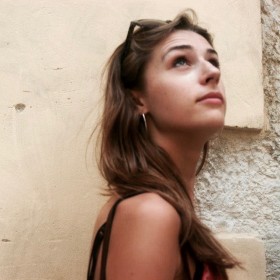
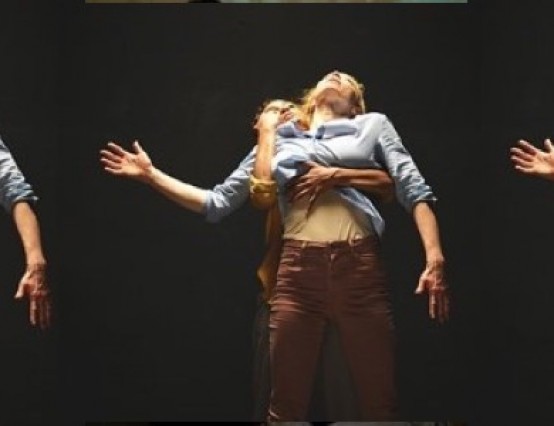
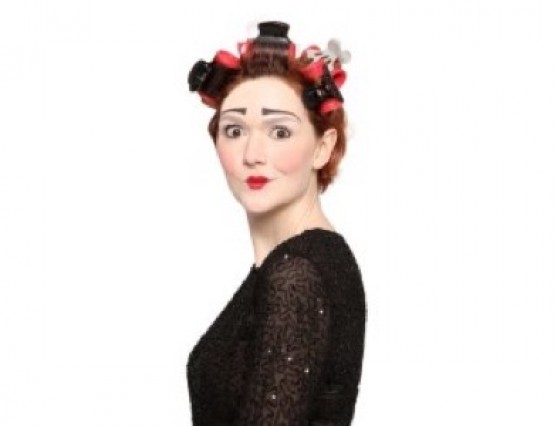
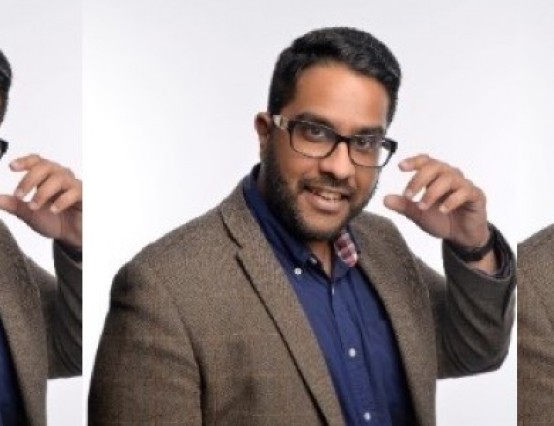



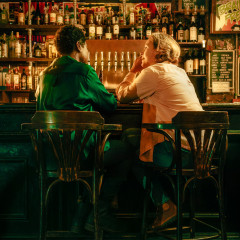
This is really educating in itself!